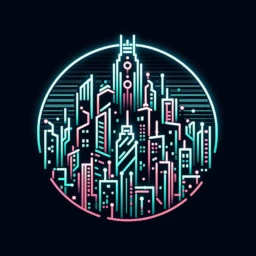These books (the first three, at least, skip the bonus fourth one) are a lot of fun. I come back to them now and then when I want a comfortable read and I’m always surprised by how good they are.
The trilogy is one of those larger-than-life, everything-including-the-kitchen-sink sort of cyberpunk stories that somehow manages to Gish Gallop right past its sillier parts as it careens through some absolutely great intrigue and action. Its perhaps not as intentionally silly as Snowcrash, but I think they’re somewhat in the same neighborhood and I’d feel comfortable recommending them to a similar crowd.
Its got just about all the big elements at one time or another – a surveillance state, yakuza/corporate conglomerations complete with company ninjas, a rogue artificial intelligence, nuclear terrorism, soviet-inspired organized crime, armed nuns, CIA assassins, an army of self-driving cars, a bunch of hacking. As it goes on, it does become clear that governments/states still play a fairly significant role in this setting, certainly still larger than corporations, but they do some cool stuff with it, especially with how things have changed in this postapocalyptic world.
One thing to say for them, status quo isn’t really a thing in the books. The Metrozone setting changes pretty drastically throughout the series from a fairly standard cyberpunk London, to a warzone under siege, to a rebuilding independent state, but it always fits, has a wonderful sense of place, and I don’t think it loses its qualification as cyberpunk just because some of the neon lights stop working partway through.
The individual characters and the larger organizations tend to be painted in pretty broad-strokes sometimes veering into being caricatures and yet they’re legitimately loveable, easy to remember, and you get a good sense of who they are immediately. Looking back on three books I read in two days, the characters are what most stand out to me, and in a good way. The protagonist has some Mary Sue traits – I think they feel earned enough to give them a pass, some readers may feel otherwise. I do appreciate his growth and arc throughout the books.
(The writer/characters sometimes use some memes which aren’t super fresh here around the same year as the book is set.)
The one place where it perhaps edges away from cyberpunk is in the themes of hope. Throughout the series the main characters strive for and make real change in the world. There’s a sense that there’s still a messy, winding path towards utopia, that everything they need is there if only they can arrange it all just right, and keep society from imploding in the meanwhile. They’re not resigned, giving up, or accepting of the fucked up world as it stands. They’re not just trying to make their way or get by. In this one way, it feels almost closer to solarpunk than cyberpunk with its noir themes of apathy.
I’m not sure if all those qualifiers wreck the case I’m trying to make - these books are interesting and most of all they’re fun, and how they do that, I think, is mostly in the delivery. All in all, I’d definitely recommend them.



Sounds interesting. I’m saving this for later. Thanks
I hope you enjoy them!